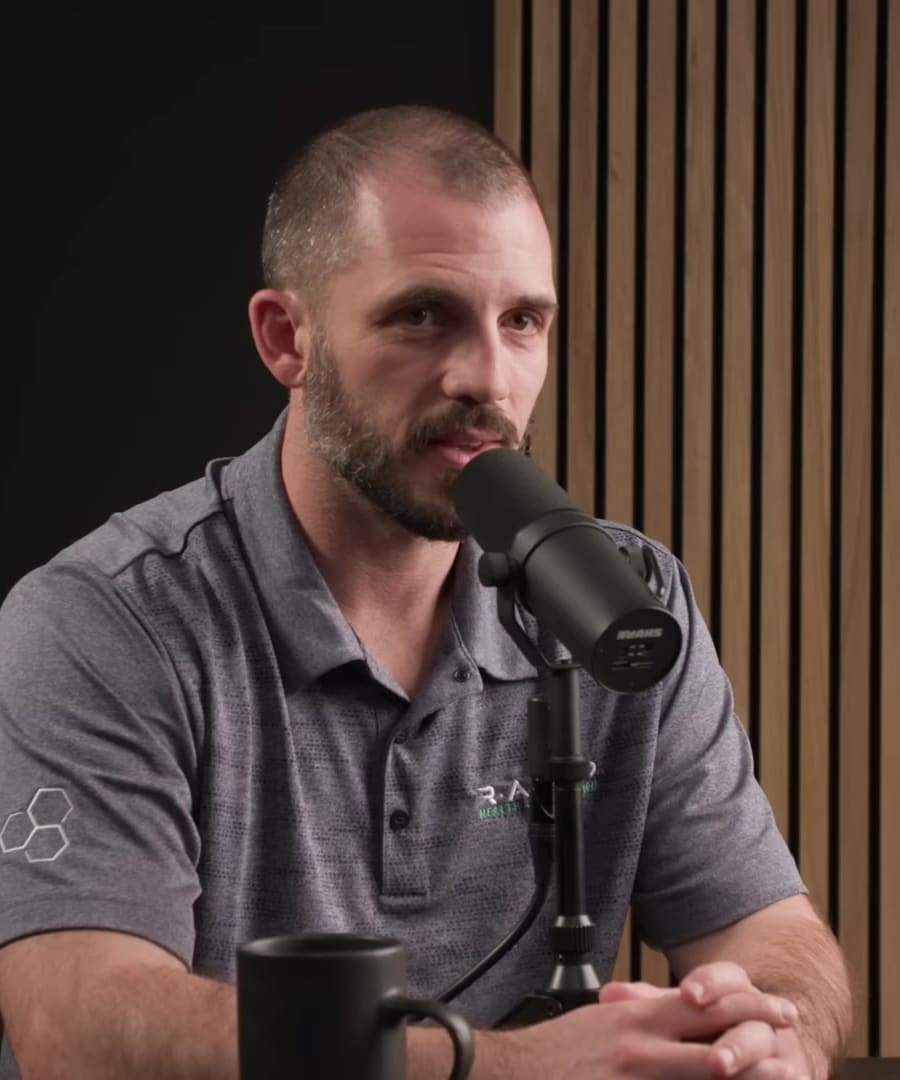What protocols are recommended for improving sleep?
Sources:
To improve sleep, several protocols are recommended by and other guests on the . Here are some of the suggestions:
- Cognitive Behavioral Therapy (CBT) - Focus on sleep hygiene, have a consistent bedtime and wake-up time, and engage in relaxing activities before bed 1.
- Non-sleep Deep Rest (NSDR) - Utilize techniques such as hypnosis from Reverie that are clinically tested for sleep 2.
- Limit Screens Before Bedtime - Avoid using devices that emit blue light which can disrupt your circadian rhythm 1.
- Regulate Temperature - A cool sleeping environment and possibly a warm bath before bed can be beneficial 1.
- Hydration Before Sleep - Sip water in the 3 hours prior to sleeping to prevent waking up for bathroom trips 3.
- Myofunctional Therapy - Tongue exercises could help with better REM sleep and reduce snoring 4.
- Sleep Exclusively - Use your bed for only sleep and sex to condition yourself to fall asleep easier 4.
- Reverie App for Hypnosis - Use sleep hypnosis which can help with falling and staying asleep 5.
Incorporating these behavioral protocols, along with good sleep hygiene habits, could significantly improve sleep quality and duration. Always consider integrating any new routines or tools systematically, and consult with a healthcare professional if you're dealing with persistent sleep problems.
RELATED QUESTIONSCan you give me more detailed tips on sleep hygiene?
Sources:
Improving sleep hygiene is vital for quality rest, and there are several detailed tips offered on the :
-
Maintain a Regular Sleep Schedule: Aim for a consistent bedtime and wake-up time, even on weekends. This reinforces your body's sleep-wake cycle 1.
-
Create a Wind-Down Routine: Before bed, engage in relaxing activities such as reading, meditation, or light stretching to help signal to your body that it's time to sleep 2.
-
Limit Screen Time: Reduce exposure to screens and blue light in the evening to prevent delaying your body’s internal clock 1.
-
Optimize Your Sleep Environment: Keep your bedroom cool, dark, quiet, and reserve it for sleep and sex to condition your body for rest 3.
-
Manage Fluid Intake: Avoid drinking large amounts of liquids before bedtime to reduce nighttime trips to the bathroom 4.
-
Monitor Food and Drink: Be cautious with caffeine and alcohol consumption, as they can disrupt sleep, and avoid large meals close to bedtime 4.
-
Regular Exercise: Regular physical activity can help you fall asleep faster and enjoy deeper sleep, but avoid exercising close to bedtime 4.
-
Comfortable Bedding: Ensure your mattress and pillows are comfortable and suitable for your sleeping style 5.
-
Exposure to Light: Get plenty of natural light exposure during the day, and use minimal light if you need to get up at night to maintain melatonin levels 4.
-
Avoid Looking at the Clock: If you wake up in the middle of the night, resist the temptation to look at the time, as it might cause stress and make it harder to fall back to sleep 4.
For specific advice and tools, including supplements or nutrition recommendations, you may want to check out the sleep toolkit on the Huberman Lab website as mentioned by 5.
RELATED QUESTIONS-
What protocols are recommended for improving sleep?
- RELATED QUESTIONS
Can you give me more detailed tips on sleep hygiene?
- RELATED QUESTIONS







